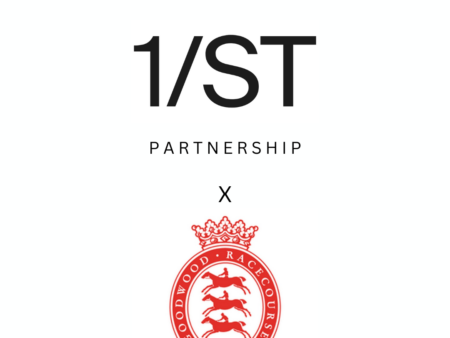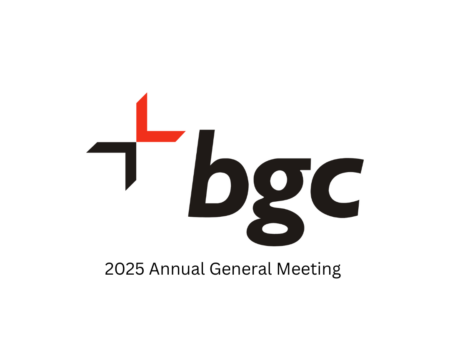In recent months, Bulgaria’s National Revenue Agency (NRA) has made headlines with its evolving stance on gambling advertising. In May, the NRA implemented stringent restrictions on promoting gambling activities across all forms of media. However, just three months later, a new interpretation of these laws has opened the door for gambling advertising through social media influencers. This article delves into the nuances of the NRA’s decision, examining the implications for the gambling industry, social media, and the broader public.
Social Media: The Loophole in Bulgaria’s Advertising Ban
Understanding the Legal Interpretation
The core of the controversy lies in the NRA’s recent clarification that social media platforms do not fall under the legal definition of “media” as outlined in Bulgaria’s Broadcasting Act. This interpretation was articulated by NRA director Rumen Spetsov, who stated that the restrictions imposed on gambling advertising would apply solely to traditional media outlets and their online editions. In contrast, social networking sites like Facebook, Instagram, TikTok, and YouTube are exempt from these restrictions.
This distinction stems from the NRA’s interpretation that social media platforms are spaces where users voluntarily choose to engage with content. According to Spetsov, by following influencers and registering on these platforms, users are implicitly consenting to view the content shared by those they follow, including gambling advertisements. This reasoning has sparked significant debate, with critics arguing that it undermines the original intent of the law, which was designed to limit the exposure of gambling promotions to vulnerable populations.
The Impact on Social Media Influencers and Advertising Strategies
The NRA’s decision has significant implications for social media influencers and the broader advertising ecosystem in Bulgaria. With traditional media channels now heavily regulated, social media has emerged as a critical platform for gambling companies looking to reach their target audiences. Influencers, with their substantial follower bases and ability to engage with specific demographics, are now key players in the promotion of gambling activities.
This shift in advertising strategy is likely to lead to increased scrutiny of social media content, as influencers navigate the legal landscape to ensure compliance with the NRA’s regulations. Additionally, the decision raises questions about the ethical responsibilities of influencers who choose to promote gambling activities, particularly given the potential for their content to reach underage users.
Concerns Over the Enforcement of the Advertising Ban
A Narrow Interpretation of Media
One of the most contentious aspects of the NRA’s decision is its narrow interpretation of what constitutes “media.” By defining media as mass communication channels with broad reach, the agency has effectively created a loophole that allows gambling content to flourish on social media platforms. Critics argue that this interpretation is flawed, as social media platforms often have a more extensive reach than traditional media outlets, particularly among younger audiences.
Rumen Spetsov has acknowledged these concerns, stating that the NRA will review each case of potential advertising violations on its own merits. However, the agency’s current stance suggests that as long as gambling content is shared on platforms that do not meet the legal definition of media, it will not be subject to the same level of scrutiny as content shared on traditional media channels.
Challenges in Regulating Social Media Content
The NRA’s decision to permit gambling advertising on social media platforms presents significant challenges for regulators. Unlike traditional media, where content can be more easily monitored and controlled, social media is characterized by its decentralized and user-generated nature. This makes it difficult to enforce advertising bans effectively, particularly when content is shared by influencers who may not be directly affiliated with gambling companies.
Moreover, the global nature of social media platforms complicates efforts to regulate content at the national level. While Bulgaria’s Broadcasting Act applies to media outlets operating within the country, social media platforms operate across borders, making it challenging to apply and enforce national regulations consistently.
The Broader Implications for Gambling Harm Reduction
Vulnerable Populations at Risk
The NRA’s decision has raised broader concerns about the effectiveness of Bulgaria’s efforts to reduce gambling harm. The original advertising ban was introduced to address the growing concern over the impact of gambling promotions on vulnerable populations, including children and individuals with gambling addictions. By allowing gambling content to be advertised on social media, critics argue that the NRA is undermining these efforts and potentially exposing more people to the risks associated with gambling.
Research has shown that gambling advertisements can significantly influence individuals’ gambling behaviors, particularly among young people who are more susceptible to such promotions. The decision to permit gambling advertising on social media platforms, where younger demographics are highly active, raises serious questions about the potential long-term impact on public health.
Ethical Considerations for Influencers
Influencers who choose to promote gambling content on their platforms must also consider the ethical implications of their actions. While the NRA’s interpretation of the law may permit such advertising, influencers have a responsibility to their followers, particularly when their content may be viewed by underage users. The decision to promote gambling activities could have far-reaching consequences, both for the influencers themselves and for the broader community.
Conclusion: A Controversial Decision with Far-Reaching Consequences
Bulgaria’s National Revenue Agency’s recent clarification on gambling advertising regulations has sparked significant debate and controversy. By distinguishing social media platforms from traditional media, the NRA has created a legal loophole that allows gambling content to be promoted to potentially vulnerable audiences. While the decision may provide opportunities for influencers and gambling companies, it also raises serious concerns about the effectiveness of Bulgaria’s efforts to control gambling advertisements and protect public health.
FAQs About Bulgaria’s National Revenue Agency’s Stance on Gambling Advertising
1. What recent changes has Bulgaria’s National Revenue Agency (NRA) made regarding gambling advertising?
The NRA recently clarified that while gambling advertising is banned across traditional media and their online editions, it is permitted on social media platforms like Facebook, Instagram, TikTok, and YouTube. This decision came three months after a near-total ban on gambling advertising in traditional media was imposed.
2. Why does the NRA consider social media platforms exempt from the gambling advertising ban?
According to the NRA, social media platforms do not fall under the legal definition of “media” as outlined in Bulgaria’s Broadcasting Act. The NRA argues that users voluntarily engage with content on these platforms, implying consent to view the content shared by the influencers they follow, including gambling advertisements.
3. How does the NRA’s decision impact social media influencers?
The NRA’s decision makes social media influencers key players in promoting gambling activities. With traditional media channels now heavily regulated, influencers can engage with specific demographics through their large follower bases, making social media a crucial platform for gambling advertising.
4. What concerns have been raised about the NRA’s interpretation of “media”?
Critics argue that the NRA’s narrow interpretation of “media,” which excludes social media platforms, undermines the intent of the original law to limit gambling advertisements. Since social media often has a broader reach than traditional media, especially among younger audiences, there are concerns about the potential impact on vulnerable populations.
5. How will the NRA enforce the advertising ban given this new interpretation?
The NRA has indicated that it will review each case of potential advertising violations on its own merits. However, the current stance suggests that as long as gambling content is shared on platforms that do not meet the legal definition of media, it will not face the same level of scrutiny as content on traditional media channels.
6. What are the ethical concerns surrounding gambling advertisements on social media?
There are significant ethical concerns, particularly regarding the potential exposure of underage users to gambling advertisements. Influencers who choose to promote gambling content must consider the impact on their followers, as their content may be viewed by younger, more impressionable audiences.
7. What are the broader implications of the NRA’s decision for public health?
The NRA’s decision raises concerns about the effectiveness of efforts to reduce gambling harm in Bulgaria. By allowing gambling content on social media, critics argue that vulnerable populations, including children and individuals with gambling addictions, may be more exposed to the risks associated with gambling.
8. How might this decision affect the future of gambling advertising in Bulgaria?
The NRA’s decision could lead to a significant shift in gambling advertising strategies, with social media becoming a primary platform for such content. This development may necessitate new regulations or amendments to existing laws to address the unique challenges posed by advertising on digital platforms.


















